Here are my favorite poems about illnesses categorized:
- Short poems about diseases
- Poems for healing and strength
- Poems about sickness and healing
- Poems about health issues
- Poems about the sick and dying
- Poems about health
So if you want the best poems about illnesses, then you’re in the right place.
Let’s get right into it!

Poignant Poems About Illnesses
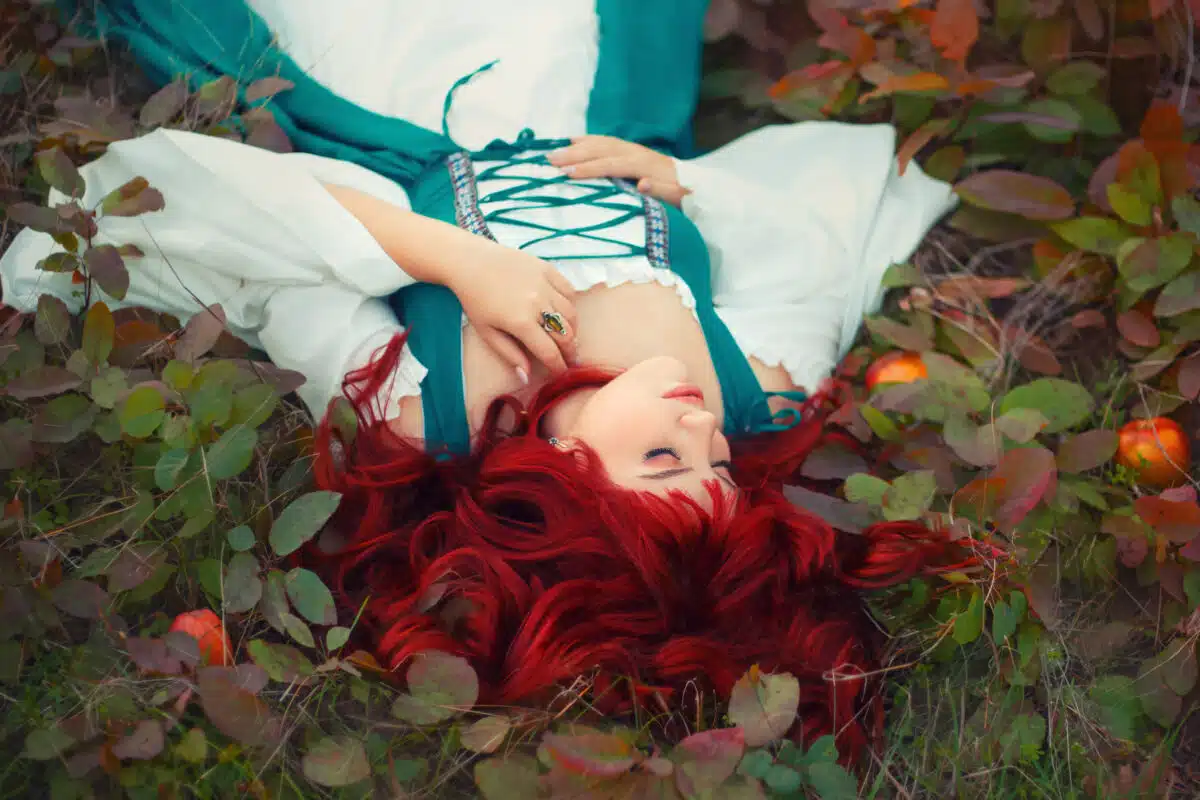
Prepare to be captivated with poems about illnesses and the challenges they bring to the life of many, all conveniently compiled in one place.
From heartfelt verses of hope and healing to whimsical rhymes that will have you reeling, these poems emphasize health’s importance and remind us all of our own resilience.
Get ready to be moved and entertained with these curated poems as we delve into topics oftentimes pained.
Let’s jump right in!
My #1 Favorite Poem About Illnesses
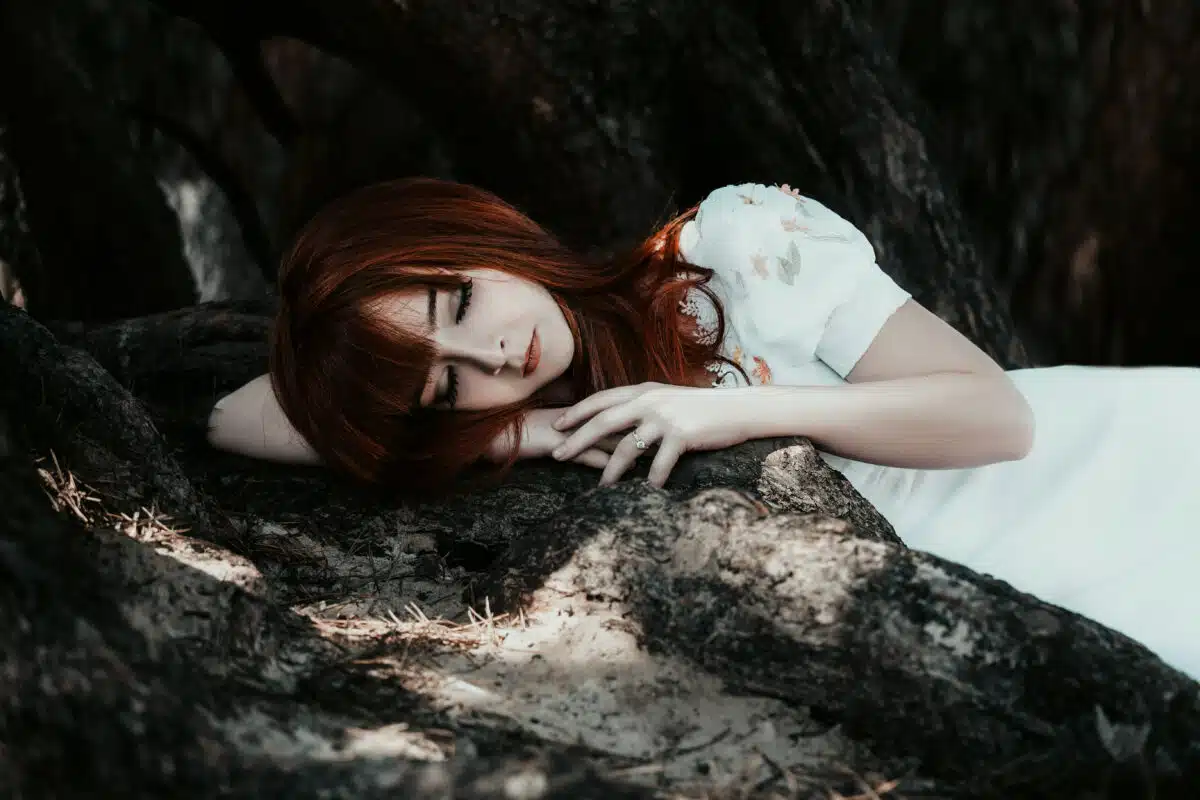
“In Hospital: After” by William Ernest Henley
Like as a flamelet blanketed in smoke,
So through the anæsthetic shows my life;
So flashes and so fades my thought, at strife
With the strong stupor that I heave and choke
And sicken at, it is so foully sweet.
Faces look strange from space—and disappear.
Far voices, sudden loud, offend my ear—
And hush as sudden. Then my senses fleet:
All were a blank, save for this dull, new pain
That grinds my leg and foot; and brokenly
Time and the place glimpse on to me again;
And, unsurprised, out of uncertainty,
I wake—relapsing—somewhat faint and fain,
To an immense, complacent dreamery.
Short Poems About Diseases

“The Headache” by Robert Herrick
My head doth ache,
O Sappho! take
Thy fillet,
And bind the pain,
Or bring some bane
To kill it.
But less that part
Than my poor heart
Now is sick;
One kiss from thee
Will counsel be
And physic.
“The Luzumiyat of Abu’l-Ala, CVIII” by Al-Ma‘arri (Ameen Rihani, Translator)
My head doth ache,
O Sappho! take
Thy fillet,
And bind the pain,
Or bring some bane
To kill it.
But less that part
Than my poor heart
Now is sick;
One kiss from thee
Will counsel be
And physic.
“Leprosy In Clothes” by Robert Herrick
When flowing garments I behold
Inspir’d with purple, pearl and gold,
I think no other, but I see
In them a glorious leprosy
That does infect and make the rent
More mortal in the vestiment.
As flowery vestures do descry
The wearer’s rich immodesty:
So plain and simple clothes do show
Where virtue walks, not those that flow.
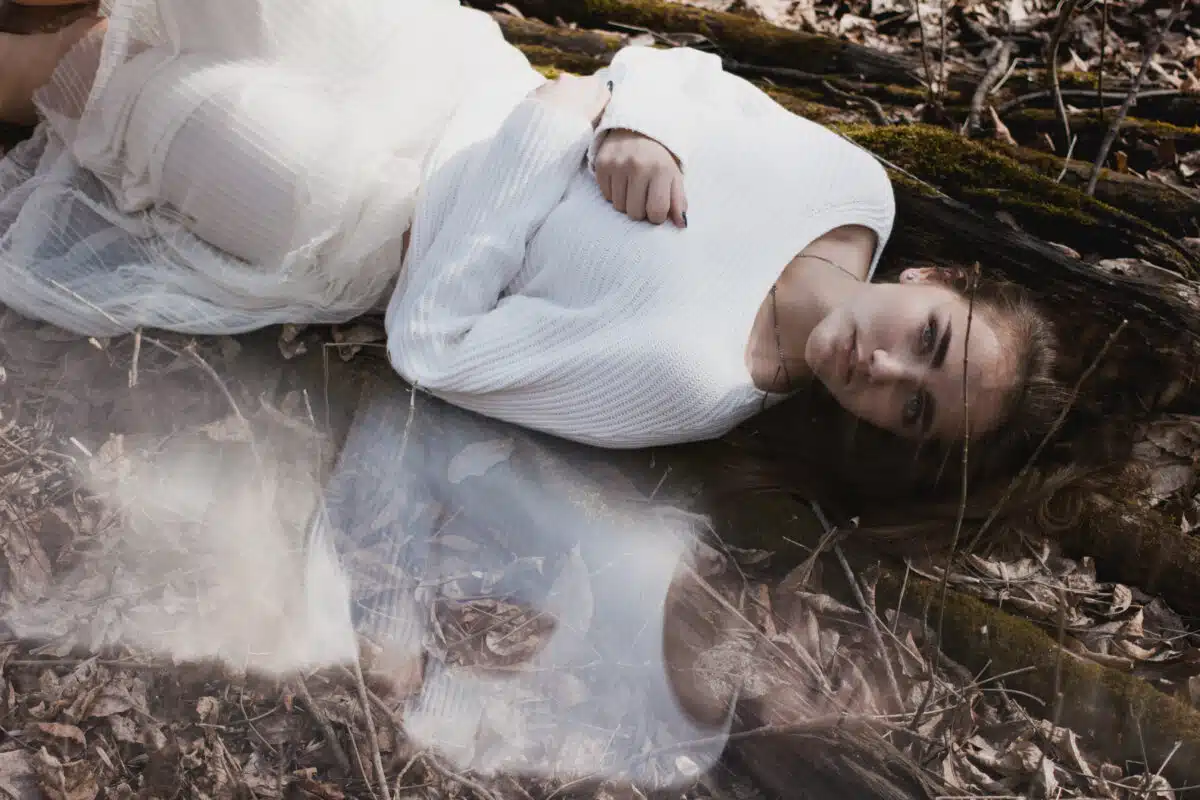
“Francis Turner” by Edgar Lee Masters
I could not run or play
In boyhood.
In manhood I could only sip the cup,
Not drink –
For scarlet-fever left my heart diseased.
Yet I lie here
Soothed by a secret none but Mary knows:
There is a garden of acacia,
Catalpa trees, and arbors sweet with vines –
There on that afternoon in June
By Mary’s side –
Kissing her with my soul upon my lips
It suddenly took flight.
“A Sickness Of This World It Most Occasions” by Emily Elizabeth Dickinson
A sickness of this world it most occasions
When best men die;
A wishfulness their far condition
To occupy.
A chief indifference, as foreign
A world must be
Themselves forsake contented,
For Deity.
“In Hospital: Before” by William Ernest Henley
Behold me waiting—waiting for the knife.
A little while, and at a leap I storm
The thick, sweet mystery of chloroform,
The drunken dark, the little death-in-life.
The gods are good to me: I have no wife,
No innocent child, to think of as I near
The fateful minute; nothing all-too dear
Unmans me for my bout of passive strife.
Yet am I tremulous and a trifle sick,
And, face to face with chance, I shrink a little:
My hopes are strong, my will is something weak.
Here comes the basket? Thank you. I am ready.
But, gentlemen my porters, life is brittle:
You carry Cæsar and his fortunes—steady!

“The Gout” by Anonymous
When Munden at his house sometime ago,
Warned a large party from his gouty toe,
A heartless fopling drawled a long ” Dear me !
I can’t imagine what the gout can be. ”
“Then, boy!” said Joe, with pain-distorted phiz
“I’ll give you some idea what it is :—
Suppose your foot fast in a blacksmith’s vise,
Then turn the screw, perhaps just once or twice,
Till you the height of agony procure,
That human nature’s able to endure,—
The pain of rheumatism, you thus find out:—
Give it another turn, and that’s the gout. “
“Affliction” by Robert Herrick
God ne’er afflicts us more than our desert,
Though He may seem to overact His part:
Sometimes He strikes us more than flesh can bear;
But yet still less than grace can suffer here.
“Haematemesis” from Punch
Clotted blood is thrown up, in color very black, sirs,
And generally sudden, as it comes up in a crack, sirs.
It’s preceded at the stomach by a weighty sensation ;
But nothing appears ruptured upon examination.
It differs from the last, by the particles thrown off, sirs,
Being denser, deeper colored, and without a bit of cough, sirs.
In plethoric habits bleed, and some acid draughts pour in, gents,
Sing hey, sing ho; if you think the lesion spacious,
The acetate of lead is found very efficacious.

“Haemoptysis” from Punch
A sensation of weight and oppression at the chest, sirs;
With tickling at the larynx, which scarcely gives you rest, sirs;
Full hard pulse, salt taste, and tongue very white, sirs;
And blood brought up in coughing, of color very bright, sirs.
It depends on causes three-the first’s exhalation;
The next a ruptured artery-the third, ulceration.
In treatment we may bleed, keep the patient cool and quiet,
Acid drinks, digitalis, and attend to a mild diet.
Sing hey, sing ho, we do not grieve
When this formidable illness takes its leave.
“To God, In His Sickness” by Robert Herrick
What though my harp and viol be
Both hung upon the willow-tree?
What though my bed be now my grave,
And for my house I darkness have?
What though my healthful days are fled,
And I lie number’d with the dead?
Yet I have hope, by thy great power,
To spring -though now a wither’d flower.
“In Hospital: Enter Patient” by William Ernest Henley
The morning mists still haunt the stony street;
The northern summer air is shrill and cold;
And lo, the Hospital, grey, quiet, old,
Where Life and Death like friendly chafferers meet.
Thro’ the loud spaciousness and draughty gloom
A small, strange child—so agèd yet so young!—
Her little arm besplinted and beslung,
Precedes me gravely to the waiting-room.
I limp behind, my confidence all gone.
The grey-haired soldier-porter waves me on,
And on I crawl, and still my spirits fail:
A tragic meanness seems so to environ
These corridors and stairs of stone and iron,
Cold, naked, clean—half-workhouse and half-jail.
Poems For Healing and Strength

“Hymn In Sickness” by William Thompson
O Lord! to Thee I lift my soul,
To thee direct my eyes,
While Fate in every vapour rolls ,
And sickening Nature sighs.
E’en air, the vehicle of Life,
The soft recess of breath,
Is made the harbinger of Fate,
And poison’d dart of Death.
No gentle strains relieve my ears:
But hark ! the passing toll,
In a long, sadly solemn knell,
Alarms, anew, my soul.
No lovely prospect meets my eye,
But melancholy fear,
Attended with the hollow pomp
Of Sickness and Despair.
My sins wide staring in my face
In ghastly guise alarm;
The pleasing sins of wanton youth,
In many a fatal charm.
I sink beneath their black approach :
My GOD! thy mercy lend!
Let Hope her healing wings diffuse;
O snatch me from the fiend!
I feel, I feel Thy saving health:
New raptures fill my heart:
A shining train of bliss succeeds;
The gloomy scenes depart.
Though straining coughs this mortal frame
To dissolution bring,
Yet dreary Death in vain affrights,
And points in vain his sting;
If gracious Heaven-at that sad hour
Its guardian arm extend:
If Angels watch my parting soul,
And save me at my end.
O Lord, or let me live or die,
Thy holy Will be done!
But let me live alone to Thee,
And die in Thee alone.
“Into Thy Hands” by Louise Manning Hodgkins
Into Thy guiding hands;
Along a way thy love and care forefend
Gladly I fare, or rough or smooth may bend
The longest road that leads at life’s far end
Into thy hands.
Into thy chastening hands:
If e’er I yield to weakness or to sin,
Blind to the guerdon Thou dost bid me win,
Bring Thou me back, by Love’s sweet discipline,
Into thy hands.
Into Thy healing hands;
No hurt of soul or body long enthralls,
The bruiséd heart that for thy succor calls
When, far from doubting as from fear, it falls
Into thy hands.
Into thy saving hands:
Despite assoil, infirmity, mistake,
My life a perfect whole thy power can make,
If Thou my shards of broken purpose take
Into thy hands.
Into Thy keeping hands;
As safe as Heaven kept the guarded Grail—
So safe, so pure, so compassed as with mail—
The soul committed, e’en through Death’s dark vale,
Into thy hands.
Into thy loving hands;
Who made my heart to love made Thee my guest;
Who made the world to tire made thee my rest;
My joyful heart I give, at thy behest,
Into thy hands.
“The Well of All-Healing” by Walter Murdoch
There’s a cure for sorrow in the well at Ballylee
Where the scarlet cressets hang over the trembling pool:
And joyful winds are blowing from the Land of Youth to me,
And the heart of the earth is full.
Many and many a sunbright maiden saw the enchanted land
With star faces glimmer up from the druid wave:
Many and many a pain of love was soothed by a faery hand
Or lost in the love it gave.
When the quiet with a ring of pearl shall wed the earth,
And the scarlet berries burn dark by the stars in the pool;
Oh, it’s lost and deep I’ll be amid the Danaan mirth,
While the heart of the earth is full.

“Ring, Happy Bells” by Alfred Tennyson
Ring out the grief that saps the mind,
For those that here we see no more;
Ring out the feud of rich and poor,
Ring in redress to all mankind.
Ring out a slowly-dying cause,
And ancient forms of party strife;
Ring in the nobler modes of life,
With sweeter manners, purer laws.
Ring out the want, the care, the sin,
The faithless coldness of the times;
Ring out, ring out my mournful rhymes,
But ring the fuller minstrel in.
Ring out false pride in place and blood,
The civic slander and the spite;
Ring in the love of truth and right
Ring in the common love of good.
Ring out old shapes of foul disease;
Ring out the narrowing lust of gold;
Ring out the thousand wars of old,
Ring in the thousand years of peace.
Ring in the valiant man and free,
The larger heart, the kindlier hand;
Ring out the darkness of the land,
Ring in the Christ that is to be.
“God protect thee from o’erheating” by Heinrich Heine (Edgar Alfred Bowring, Translator)
God protect thee from o’erheating,
And thy heart from palpitation,
Keep thee from excessive eating,
And excessive perspiration.
As upon thy day of marriage
May thy love be ever blessèd!
Ne’er the bridal yoke disparage!
Be thy frame with health possessèd!
“At Last” by John Greenleaf Whittier
When on my day of life the night is falling,
And, in the winds from unsunned spaces blown,
I hear far voices out of darkness calling
My feet to paths unknown;
Thou who hast made my home of life so pleasant,
Leave not its tenant when its walls decay;
O Love Divine, O Helper ever present,
Be thou my strength and stay!
Be near me when all else is from me drifting:
Earth, sky, home’s pictures, days of shade and shine,
And kindly faces to my own uplifting
The love which answers mine.
I have but Thee, my Father! let thy spirit
Be with me then to comfort and uphold;
No gate of pearl, no branch of palm I merit,
Nor street of shining gold.
Suffice it if—my good and ill unreckoned,
And both forgiven through thy abounding grace—
I find myself by hands familiar beckoned
Unto my fitting place.
Some humble door among thy many mansions,
Some sheltering shade where sin and striving cease,
And flows forever through heaven’s green expansions
The river of thy peace.
There, from the music round about me stealing,
I fain would learn the new and holy song,
And find at last, beneath thy trees of healing,
The life for which I long.
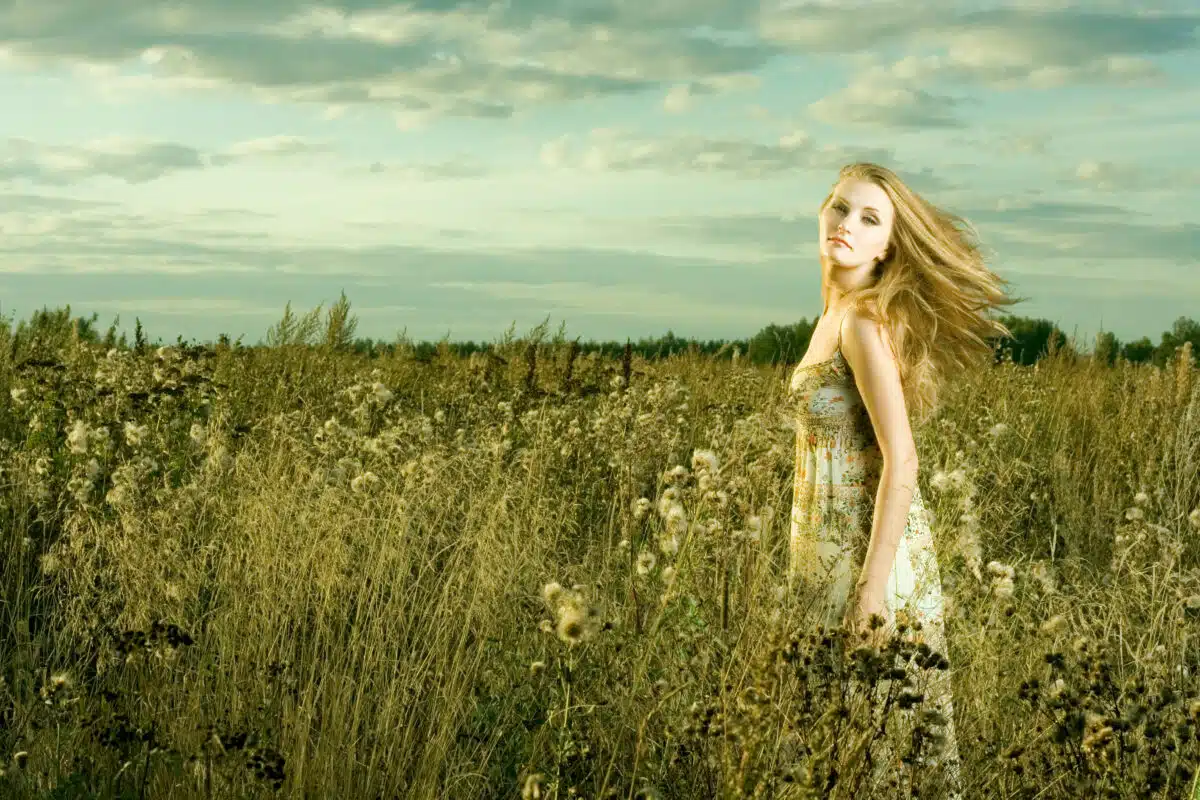
“By Doing Good We Live” by Josephine Troup
A certain wise man, deeply versed
In all the learning of the East,
Grew tired in spirit, and athirst
From life to be released.
So to Eliab, holy man
Of God he came: “Ah, give me, friend,
The herb of death, that now the span
Of my vain life may end.”
Eliab gently answered: “Ere
The soul may free itself indeed,
This herb of healing thou must bear
To seven men in need;
“When thou hast lightened each man’s grief,
And brought him hope and joy again,
Return; nor shalt thou seek relief
At Allah’s hands in vain.”
The wise man sighed, and humbly said:
“As Allah willeth, so is best.”
And with the healing herb he sped
Away upon his quest.
And as he journeyed on, intent
To serve the sorrowing in the land
On deeds of love and mercy bent,
The herb bloomed in his hand,
And through his pulses shot a fire
Of strength and hope and happiness;
His heart leaped with a glad desire
To live and serve and bless.
Lord of all earthly woe and need,
Be this, life’s flower, mine!
To love, to comfort, and to heal—
Therein is life divine!
“Following The Master” by Unknown
I asked the Lord that I might worthier be,
Might grow in faith and hope and charity;
And straight, “Go feed my lambs!” he answered me.
“Nay, Lord!” I cried. “Can outward deeds avail
To cleanse my spirit? Heart and courage fail
And sins prevent, and foes and fears assail.”
And still, “Go, feed my lambs!” was all I heard.
But should I rest upon that simple word?
Was that, indeed, my message from my Lord?
Behold, I thought that he his hand would lay
On my sick soul, and words of healing say,
And charm the plague-spot from my heart away.
Half wroth, I turned to go; but oh! the look
He on me cast—a gaze I could not brook;
With deep relentings all my spirit shook.
“O dearest Lord,” I cried, “I will obey,
Say what thou wilt! only lead thou the way;
For, following thee, my footsteps shall not stray.”
He took me at my word. He went before;
He led me to the dwellings of the poor,
Where wolf-eyed Want keeps watch beside the door.
He beckoned me, and I essayed to go
Where Sin and Crime, more sad than Want and Woe,
Hold carnival, and Vice walks to and fro.
And when I faltered at the sight, He said,
“Behold, I died for such! These hands have bled,
This side for such has pierced been,” he said.
“Is the disciple greater than his Lord?
The servant than his Master?” Oh, that word!
It smote me like a sharp, two-edged sword!
And since that hour, if any work of mine
Has been accepted by my Lord as sign
That I was following in his steps divine;
If, serving others (though imperfectly),
My own poor life has worthier come to be,
And I have grown in faith and charity,
Dear Lord, be thine the glory! Thou hast wrought,
All unaware, the blessing that I sought.
O that these lips might praise thee as they ought!
“Walking With Jesus” by Anna Letitia Waring
My Saviour, on the Word of Truth
In earnest hope I live,
I ask for all the precious things
Thy boundless love can give.
I look for many a lesser light
About my path to shine;
But chiefly long to walk with thee,
And only trust in thine.
Thou knowest that I am not blest
As Thou would’st have me be
Till all the peace and joy of faith
Possess my soul in thee;
And still I seek ‘mid many fears,
With yearnings unexpressed,
The comfort of thy strengthening love,
Thy soothing, settling rest.
It is not as Thou wilt with me
Till, humbled in the dust,
I know no place in all my heart
Wherein to put my trust:
Until I find, O Lord! in thee—
The lowly and the meek—
That fullness which thy own redeemed
Go nowhere else to seek.
Then, O my Saviour! on my soul,
Cast down but not dismayed,
Still be thy chastening healing hand
In tender mercy laid:
And while I wait for all thy joys
My yearning heart to fill,
Teach me to walk and work with thee,
And at thy feet sit still.
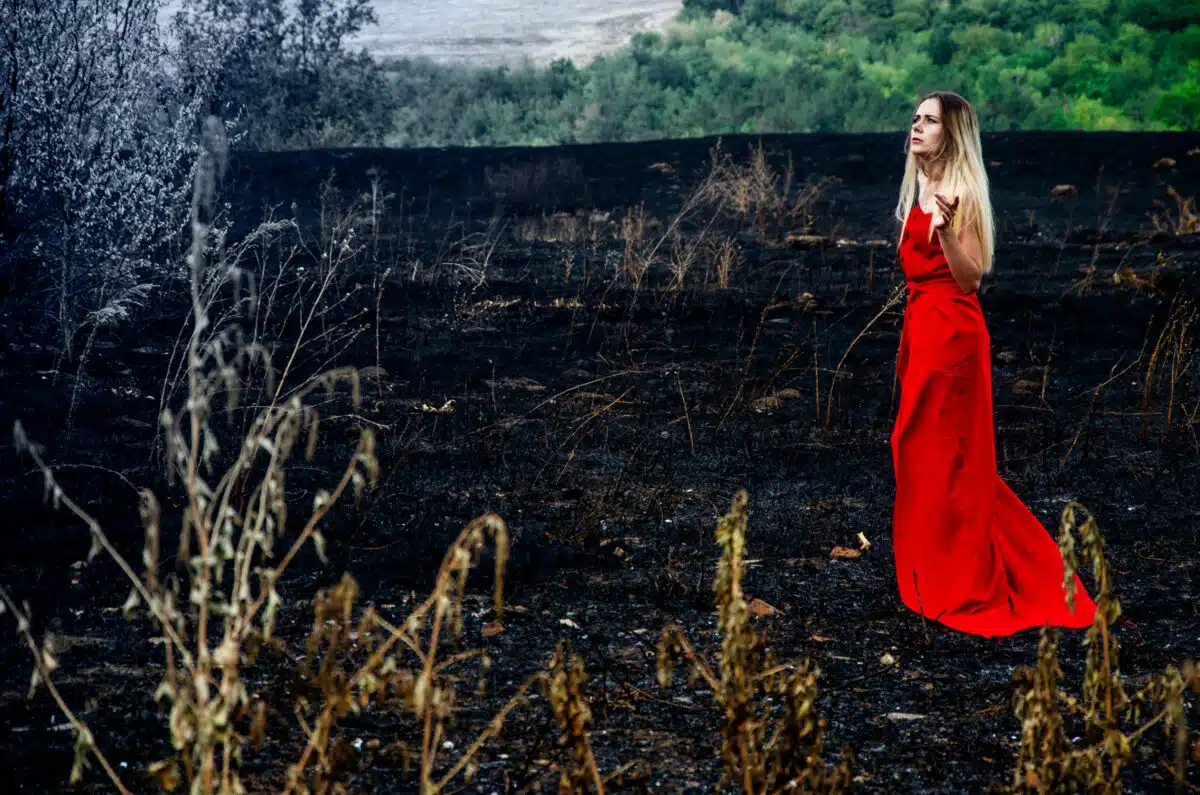
“Granted Or Denied” by Susan Coolidge
To long with all our longing powers,
And have the wish denied;
To urge and strain our force in vain
Against the unresting tide
Of fate and circumstance, which still
Baffles and beats and thwarts our will;
To reach the goal toward which we strove
All the long way and hard;
To win the prize which, to our eyes,
Seemed life’s one best reward—
Love’s rose, Fame’s laurel, olived Peace,
The gold-fruit of Hesperides—
And then to find the prize all vain,
The joys all empty made—
To taste the sting in each sweet thing,
To watch Love’s roses fade,
The fruit to ashes turn, the gold
To worthless dross within our hold!
Now which has most of grief and pain,
Which is the worse to bear:
The joy we crave and never have,
Or the curse of the granted prayer?
The baffled wish or the bitter rue—
Could our hearts choose between the two?
O will of God, thou blessèd will!
Which, like a balmèd air,
The breath of souls about us rolls,
Touching us everywhere,
Imparting, like a soft caress,
Healing, and help, and tenderness,
O will of God, be thou our will!
Then, come or joy or pain,
Made one with thee it cannot be
That we shall wish in vain,
And, whether granted or denied,
Our hearts shall be all satisfied.
“God’s Mercy” by Frederick William Faber
There’s a wideness in God’s mercy
Like the wideness of the sea;
There’s a kindness in his justice
Which is more than liberty.
There is welcome for the sinner,
And more graces for the good;
There is mercy with the Saviour;
There is healing in his blood.
There is no place where earth’s sorrows
Are more felt than up in heaven;
There is no place where earth’s failings
Have such kindly judgment given.
There is plentiful redemption
In the blood that has been shed;
There is joy for all the members
In the sorrows of the Head.
For the love of God is broader
Than the measure of man’s mind,
And the heart of the Eternal
Is most wonderfully kind.
If our love were but more simple,
We should take him at his word,
And our lives would be all sunshine
In the sweetness of our Lord.
“New Every Morning” by Susan Coolidge
Every day is a fresh beginning,
Every morn is the world made new;
You who are weary of sorrow and sinning,
Here is a beautiful hope for you—
A hope for me and a hope for you.
All the past things are past and over,
The tasks are done and the tears are shed;
Yesterday’s errors let yesterday cover;
Yesterday’s wounds, which smarted and bled,
Are healed with the healing which night has shed.
Yesterday is a part of forever,
Bound up in a sheaf which God holds tight;
With glad days, and sad days, and bad days, which never
Shall visit us more with their bloom and their blight,
Their fullness of sunshine or sorrowful night.
Let them go, since we cannot relieve them;
Cannot undo, and cannot atone;
God in his mercy, receive, forgive them!
Only the new days are our own.
To-day is ours, and to-day alone.
Here are the skies all burnished brightly,
Here is the spent earth all reborn;
Here are the tired limbs springing lightly
To face the sun, and to share with the morn
In the chrism of dew and the cool of dawn.
Every day is a fresh beginning;
Listen, my soul, to the glad refrain,
And, spite of all sorrow and old sinning,
And puzzle forecasted, and possible pain,
Take heart with the day, and begin again.

“I’ve Found A Joy In Sorrow” by Unknown
I’ve found a joy in sorrow,
A secret balm for pain,
A beautiful to-morrow
Of sunshine after rain;
I’ve found a branch of healing
Near every bitter spring,
A whispered promise stealing
O’er every broken string.
I’ve found a glad hosanna
For every woe and wail,
A handful of sweet manna
When grapes of Eschol fail;
I’ve found a Rock of Ages
When desert wells were dry;
And, after weary stages,
I’ve found an Elim nigh—
An Elim with its coolness,
Its fountains, and its shade;
A blessing in its fullness
When buds of promise fade;
O’er tears of soft contrition
I’ve seen a rainbow light;
A glory and fruition
So near!—yet out of sight.
My Saviour, thee possessing,
I have the joy, the balm.
The healing and the blessing.
The sunshine and the psalm;
The promise for the fearful,
The Elim for the faint,
The rainbow for the tearful,
The glory for the saint!
Poems About Sickness and Healing

From “On Recovering From A Fit Of Sickness, In the Country” by Mark Akenside
Thy verdant scenes, O Goulder’s Hill,
Once more I seek, a languid guest:
Withthrobbing temples and with burden’d breast
Once more I climb thy steep aerial way.
O faithful cure of oft returning ill ,
Now call thy sprightly breezes round,
Dissolve this rigid cough profound, play.
And bid the springs of life with gentler movement
How gladly mid the dews of dawn
My weary lungs thy healing gale,
The balmy west or the fresh north, inhale!
How gladly, while my musing footsteps rove
Round the cool orchard or the sunny lawn,
Awaked I stop, and look to find
What shrub perfumes the pleasant wind,
Or what wild songster charms the dryads of the
grove.
Now, ere the morning walk is done,
The distant voice of Health I hear,
Welcome as Beauty’s to the lover’s ear.
Droop not, nor doubt of my return (she cries),
Here will I, mid the radiant calm of noon,
Meet thee beneath yon chesnut bower,
And lenient on thy bosom pour skies.
That indolence divine which lulls the earth and
The goddess promised not in vain;
I found her at my favourite time:
Nor wish’d to breathe in any softer clime,
While (half reclined , half slumbering as I lay)
She hover’d o’er me. Then, among her train
Of nymphs and zephyrs, to my view
Thy gracious form appear’d anew; day.
Then first, O heavenly Muse, unseen for many a
In that soft pomp the tuneful maid
Shone like the golden star of love:
I saw her hand in careless measures move;
I heard sweet preludes dancing on her lyre,
While mywhole frame the sacred sound obey’d.
New sunshine o’er my fancy springs,
New colours clothe external things,
And the last glooms ofpain and sickly plaint retire.
“Sickness” by D. H. Lawrence (David Herbert Richards)
Waving slowly before me, pushed into the dark,
Unseen my hands explore the silence, drawing the bark
Of my body slowly behind.
Nothing to meet my fingers but the fleece of night
Invisible blinding my face and my eyes! What if in their flight
My hands should touch the door!
What if I suddenly stumble, and push the door
Open, and a great grey dawn swirls over my feet, before
I can draw back!
What if unwitting I set the door of eternity wide
And am swept away in the horrible dawn, am gone down the tide
Of eternal hereafter!
Catch my hands, my darling, between your breasts.
Take them away from their venture, before fate wrests
The meaning out of them.
“To Doctor Empiric” by Ben Jonson
When men a dangerous disease did escape
Of old they gave a cock to Esculape;
Let me give two, that doubly am got free;
From my disease’s danger, and from thee!

From “Sickness” by William Thompson
BOOK I.
Of days with pain acquainted, and of nights
Unconscious of the healing balms of sleep,
That burn in restless agonies away;
Of Sickness, and its family of woes,
The fellest enemies of life, I sing,
Horizon’d close in darkness. While I touch
The ebon instrument of solemn tone,
Pluck’d from the cypress’ melancholy boughs,
Which, deepening, shade the house of mourning, groans
Andhollow wailings, throughthe damps of night,
Responsive wound the ear. The sprightly powers
Of musical enchantment wave their wings,
And seek the fragrant groves and purple fields ,
Where Pleasure rolls her honey-trickling streams
Of blooming Health and laughter-dimpled Joy.
Me other scenes than laughing Joy, and Health
High- blooming, purple living fields and groves ,
Fragrant with spring, invite. Too longthe Muse,
Ah! much too long, a libertine, diffused
On Pleasure’s rosy lap, has idly breathed
Love-sighing elegies , and pastoral strains,
The soft seducers of our youthful hours,
Soothing away the vigour of the mind,
And energy of virtue. But, farewell,
Ye myrtle walks, ye lily-mantled meads
Of Paphos, and the fount of Acidale,.
Where oft, in summer, Grecian fables tell ,
The daughters of Eurynome and Jove,
Thalia and her sister Graces, cool
Their glowing features, at the noontide hour;
Farewell! —But come, Urania, from thy bowers
Of everlasting day. O condescend
To lead thy votary (with rapturous zeal
Adoring Nature’s God, the great Three-One!)
To Salem; where the Shepherd Monarch waked
The sacred breath of melody, and swell’d
His harp, to angels’ kindred notes attuned,
With music worthy Heaven! O bathe my breast,
With praises burning, in the morning dews,
Which sparkle, Sion, on thy holy hill.
“Epiphany” by Madison Cawein
There is nothing that eases my heart so much
As the wind that blows from the great green hills;
’Tis a hand of balsam whose healing touch
Unburdens my bosom of ills.
There is nothing that maketh my soul to rejoice
Like the sunset flaming without a flaw:
’Tis a burning bush whence God’s own voice
Addresses my spirit with awe.
There is nothing that hallows my mind, meseems,
Like the night with its moon and its starry slope:
’Tis a mystical lily whose golden gleams
Fulfill my being with hope.
There is nothing, no, nothing, we see and feel,
That speaks to our souls some beautiful thought,
That was not created to help us and heal
Our lives that are overwrought.
From “The Progress Of Sickness” by William Thompson
BOOK III.
The fair, the bright, the great, alas! are fallen,
Nipp’d in the bloom of beauty, wit, and youth,
Death’s undistinguish’d prey. Shall I complain
(When suchthe’ establish’d ordinance of Heaven)
If Sickness at my bosom lay the siege?
A worm to them ! and to their light a shade,
Ungilded with one beam, which melted down
The tear fast-trickling o’er their honour’d tombs:
We all must die! Our every pulse that beats,
Beats toward eternity , and tolls our doom.
Fate reigns in all the portions of the year.
The fruits of Autumn feed us for disease;
The Winter’s raw inclemencies bestow
Disease on Death; while Spring, to strew our hearse,
Kindly unbosoms, weeping in their dews,
Her flowery race! and Summer (kinder still)
With the green turf and brambles binds our graves.
But am I wake? or in Ovidian realms,
And Circè holds the glass? What odious change,
What metamorphose strikes the dubious eye?
Ah, whither is retired the scarlet wave, cheek,
Mantling with health, which floated through the
From the strong summer beam imbibed? And
The vernal lily’s softly blended bloom? where
The forehead roughens to the wondering hand.
Wide o’er the human field, the body, spreads
Contagious war, and lays its beauties waste.
As once thy breathing harvest, Cadmus, sprung,
Sudden, a serpent brood! an armed crop
Ofgrowing chiefs, and fought themselves to death.
One black-incrusted bark of gory biles,
One undistinguish’d blister, from the sole
Ofthe sore foot, to the head’s sorer crown.
Job’s punishment! With patience like his own,
O may I exercise my wounded soul,
And cast myself upon his healing hand,
Who bruiseth at his will , and maketh whole.
Ah, too, the lustre of the eyes is fled!
Heavy and dull, their orbs neglect to roll,
In motionless distortion stiff and fix’d;
Till by the trembling hand of watchful Age
(A weeping matron , timorous to affright,
And piously fallacious in her care,
Pretending light offensive, and the sun)
Closed; and, perhaps, for ever! ne’er again
To open on the sphere, to drink the day,
Or (worse!) behold Ianthe’s face divine,
And wonder o’er her charms. -But yet forbear,
O dare not murmur; ‘ tis Heaven’s high behest:
Though darkness through the chambers of the
grave
This dust pursue, and Death’s sad shade involve,
Ere long, the filial light himself shall shine;
(The stars are dust to him, the sun a shade)
These very eyes, these tunicles of flesh, [God,
E’en though by worms destroy’d, shall see my
And, seeing, ne’er remember darkness more,
Environ’d with eternity of day.

From “Beaconsfield” by Mary Leadbeater
Blest be the man and blest is he and shall,
In spite of the great vulgar and the small,
Who,—though high heav’n with talents hath endow’d ,
With talents scarce to human lot allow’d,
Yet, while the festive board displays its charms,
And sprightly mirth and social frier dship warms,
When the sad voice of indigence he hears,
And pain and sickness, eloquent in tears,
Forsakes the festive board with pitying eyes,
Mingles the healing draught, —and sickness flies;
Or, if the mind be torn with sore distress,
Seeks with kind care the grievance to redress.
This, this is Edmund Burke — and this his creed:
This is sublime and beautiful indeed!
“The New Jewish Hospital At Hamburg” by Heinrich Heine (Edgar Alfred Bowring, Translator)
A hospital for Jews who’re sick and needy,
For those unhappy threefold sons of sorrow,
Afflicted by the three most dire misfortunes
Of poverty, disease, and Judaism.
The worst by far of all the three the last is,
That family misfortune, thousand years old,
That plague which had its birth in Nile’s far valley,
The old Egyptian and unsound religion.
Incurable deep pain! ’gainst which avail not
Nor douche nor vapour-bath, the apparatus
Of surgery, nor all the means of healing
Which this house offers to its sickly inmates.
Will Time, eternal goddess, e’er extinguish
This glowing ill, descending from the father
Upon the son,—and will the grandson ever
Be cured, and rational become and happy?
I cannot tell! Yet in the meantime let us
Extol that heart which lovingly and wisely
Sought to alleviate pain as far as may be,
Into the wounds a timely balsam pouring.
Dear worthy man! He here has built a refuge
For sorrows which by the physician’s science
(Or else by death’s!) are curable, providing
Cushions, refreshing drinks, and food, and nurses.
A man of deeds, he did his very utmost,
Devoted to good works his hard-earned savings
In his life’s evening, kindly and humanely,
Recruiting from his toils by acts of mercy.
He gave with open hand—but gifts still richer,
His tears, full often from his eyes were rolling,
Tears fair and precious, which he wept deploring
His brethren’s great, incurable misfortune.
“To A Gentleman On His Voyage To Great-Britain For The Recovery of His Health” by Phillis Wheatley
While others chant of gay Elysian scenes,
Of balmy zephyrs, and of flow’ry plains,
My song more happy speaks a greater name,
Feels higher motives and a nobler flame.
For thee, O R——-, the muse attunes her strings,
And mounts sublime above inferior things.
I sing not now of green embow’ring woods,
I sing not now the daughters of the floods,
I sing not of the storms o’er ocean driv’n,
And how they howl’d along the waste of heav’n.
But I to R——- would paint the British shore,
And vast Atlantic, not untry’d before:
Thy life impair’d commands thee to arise,
Leave these bleak regions and inclement skies,
Where chilling winds return the winter past,
And nature shudders at the furious blast.
O thou stupendous, earth-enclosing main
Exert thy wonders to the world again!
If ere thy pow’r prolong’d the fleeting breath,
Turn’d back the shafts, and mock’d the gates of death,
If ere thine air dispens’d an healing pow’r,
Or snatch’d the victim from the fatal hour,
This equal case demands thine equal care,
And equal wonders may this patient share.
But unavailing, frantic is the dream
To hope thine aid without the aid of him
Who gave thee birth and taught thee where to flow,
And in thy waves his various blessings show.
May R——- return to view his native shore
Replete with vigour not his own before,
Then shall we see with pleasure and surprise,
And own thy work, great Ruler of the skies!

“Oh, Poor, Sick World” by Ella Wheeler Wilcox
Lord of all the Universe, when I think of YOU,
Flinging stars out into space, moving suns and tides;
Then this little mortal mind gets the larger view,
And the carping self of me runs away and hides.
Then I see all shadowed paths leading out to Light;
See the false things fade away, leaving but the True;
See the wrong things slay themselves, leaving only Right;
When this little mortal mind gets the larger view.
Cavillings at this and that, censure, doubt and fear,
Fly, as fly before the dawn, insects of the night;
Life and Death are understood; everything seems clear,
All the wrong things slay themselves, leaving only Right.
The World has walked with fever in its veins
For many and many a day. Oh, poor, sick world!
Not knowing all its dreams of greed and gain,
Of selfish conquest and possession, were
Disordered visions of a brain diseased.
Now the World’s malady is at its height
And there is foul contagion in its breath.
It raves of death and slaughter; and the stars
Shake with reverberations of its cries,
And the sad seas are troubled and disturbed.
So must it rave – this sick and suffering world –
Until the old secretions in its blood
Are emptied out and purged away by war;
And the deep seated cankers of the mind
Begin the healing process. Then a calm
Shall come upon the earth; and that loved word
PEACE, shall be understood from shore to shore.
Shriek on, mad world. The great Physician sits
Serenely conscious of the coming change,
Nor seeks to check the fever; it must run
Until its course is finished. He can wait.
In his vast Solar Systems he has seen
So many other worlds as sick as this
He feels but pity for his ailing charge,
Not blame or anger. And he knows the hour
Will surely dawn when that sick child shall wake
Free from all frenzied fancies, and shall turn
Clear-seeing eyes upon the face of God.
Then shall begin the new millennium.
Lord of all the Universe, when I think of YOU,
Then this little mortal mind gets the larger view;
Then I see all shadowed paths leading into Light,
Where the wrong things slay themselves, leaving only Right.
Oh, poor, sick world!
From “Adrian” by Henry Cook
XIV.
She woke, and found her aching head
Reposed upon a lowly bed;
Some gentle hand her forehead bathed,
And then her fevered fingers laved,
With kindest care her pillow laid,
But, when she tried to speak, forbade:
Surprised, she raised her eye, and found
Herself within the convent ground.
She smiled, then sighing deeply, closed
Her eyes, and happily reposed.
Her youthful blood and buoyant frame,
The fierce disease at last o’ercame;
She rose again, ‘ twas but to feel
The canker o’er her bosom steal;
She smiled no more, but sad and meek
Her only joys in heaven would seek.
From “The Glastonbury Pilgrimage” by Samuel Bowden
As zealous pilgrims, far and near,
Inspir’d by superstitious fear,
Flock to Loretto’s facred fhrine,
To beg fome grace, or gift divine
Or as to Mecca’s holy air
Enthufiaftic Turks repair;
So crowds, eke full of monkish zeal,
Repair to Glaston’s healing well:
There to be conjur’d from their ails,
When Galen’s art no more prevails;
And into health to be enchanted,
Tho’ with Pandora’s curses haunted.
This sacred stream will soon supply
A salve for every malady:
The groping blind receive their sight;
The staggering cripple walks upright;
Asthmatic lungs expand again,
And gouty patients lose their pain.
Drink, and believe; believe, and drink;
Marasmus sills, and Dropsies sink.
BUT how this spring got reputation,
Attend this genuine relation.
Poems About Health Issues

“Mental Cases” by Wilfred Edward Salter Owen
Who are these? Why sit they here in twilight?
Wherefore rock they, purgatorial shadows,
Drooping tongues from jaws that slob their relish,
Baring teeth that leer like skulls’ tongues wicked?
Stroke on stroke of pain,—but what slow panic,
Gouged these chasms round their fretted sockets?
Ever from their hair and through their hand palms
Misery swelters. Surely we have perished
Sleeping, and walk hell; but who these hellish?
—These are men whose minds the Dead have ravished.
Memory fingers in their hair of murders,
Multitudinous murders they once witnessed.
Wading sloughs of flesh these helpless wander,
Treading blood from lungs that had loved laughter.
Always they must see these things and hear them,
Batter of guns and shatter of flying muscles,
Carnage incomparable and human squander
Rucked too thick for these men’s extrication.
Therefore still their eyeballs shrink tormented
Back into their brains, because on their sense
Sunlight seems a bloodsmear; night comes blood-black;
Dawn breaks open like a wound that bleeds afresh
—Thus their heads wear this hilarious, hideous,
Awful falseness of set-smiling corpses.
—Thus their hands are plucking at each other;
Picking at the rope-knouts of their scourging;
Snatching after us who smote them, brother,
Pawing us who dealt them war and madness.
“In Hospital: Vigil” by William Ernest Henley
Lived on one’s back,
In the long hours of repose,
Life is a practical nightmare—
Hideous asleep or awake.
Shoulders and loins
Ache – – – !
Ache, and the mattress,
Run into boulders and hummocks,
Glows like a kiln, while the bedclothes—
Tumbling, importunate, daft—
Ramble and roll, and the gas,
Screwed to its lowermost,
An inevitable atom of light,
Haunts, and a stertorous sleeper
Snores me to hate and despair.
All the old time
Surges malignant before me;
Old voices, old kisses, old songs
Blossom derisive about me;
While the new days
Pass me in endless procession:
A pageant of shadows
Silently, leeringly wending
On . . . and still on . . . still on!
Far in the stillness a cat
Languishes loudly. A cinder
Falls, and the shadows
Lurch to the leap of the flame. The next man to me
Turns with a moan; and the snorer,
The drug like a rope at his throat,
Gasps, gurgles, snorts himself free, as the night-nurse,
Noiseless and strange,
Her bull’s eye half-lanterned in apron,
(Whispering me, ‘Are ye no sleepin’ yet?’),
Passes, list-slippered and peering,
Round . . . and is gone.
Sleep comes at last—
Sleep full of dreams and misgivings—
Broken with brutal and sordid
Voices and sounds that impose on me,
Ere I can wake to it,
The unnatural, intolerable day.
“Heart Disease” by James B. Burnet, M. D.
“I list, as thy heart and ascending aorta
Their volumes of valvular harmony pour,
And my soul, from that muscular music has caught a
New life, ‘ mid its dry anatomical lore.
“Oh! rare is the sound, when thy ventricles throb
In a systolic symphony, measured and slow,
While the auricles answer with rythmical sob
As they murmur a melody wondrously low.
“Oh! thy cornea, love, has the radiant light
Of the sparkle that laughs in the icicle’s sheen,
And thy crystalline lens, like a diamond bright,
Through the quivering frame of thine iris is seen.
“And thy retina, spreading its lustre of pearl,
Like a far-away nebula, distantly gleams
From a vault of black cellular mirrors, that hurl
From their hexagon angles the silvery beams.
“Oh! the flash of those orbs is enslaving me still,
As they roll ‘ neath thy palpebræ, dimly translucent,
Obeying, in silence, the magical will
Of the oculo-motor-pathetic-abducent.
“Oh! sweet is thy voice, as it sighingly swells
From thy daintily quivering chordæ vocales,
Or rings in clear tones from the echoing cells
Of the antrum, the ethmoid, and sinus frontales.
And stately the heave of thy maidenly breast
As the swell of the billow soft rolling to land,
And as soft the vesicular sigh in thy chest
As the sound of the ripple that ebbs o’er the sand.
“But alas! ‘ tis with many forebodings I pen
Anatomical verses thy beauty to praise,
For I fear that my studies will never again
Bring the solace they gave in happier days.
“Thou hast stolen the charm from my studio dim,
From dissection I turn with embittering wrath ;
Thou hast stepped between me and my skeleton grim,
Oh lady! fair lady! why crossed you my path?”

“Address to the Toothache” by Robert Burns
“My curse upon thy venomed stang,
That shoots my tortured gums alang;
And thro’ my lugs gies mony a twang,
Wi’ gnawing vengeance;
Tearing my nerves wi’ bitter pang,
Like racking engines!
When fevers burn or ague freezes,
Rheumatics gnaw, or cholic squeezes;
Our neighbors’ sympathy may ease us,
Wi’ pitying moan;
But thee-thou hell o’ a’ diseases,
Aye mocks our groan!
Adown my beard the slavers trickle!
I kick the wee stools o’er the mickle,
As round the fire the giglets keckle,
To see me loup;
While, raving mad, I wish a heckle
Were in their doup.
O’ a’ the num’rous human dools,
Ill har’sts, daft bargains, cutty stools,
Or worthy friends rak’d in the mools,
Sad sight to me!
The tricks o’ knaves or fash o’ fools,
Thou bear’st the gree.
Where’er that place be priests ca’ hell,
Whence a’ the tones o’ mis’ry yell,
And ranked plagues their number tell,
In dreadfu’ raw,
Thou, toothache, surely bear’st the bell
Amang them a’;
Othou grim, mischief-making chiel,
That gars the notes of discord squeel,
Till daft mankind aft dance a reel
In gore a shoe-thick; –
Gie a’ the faes o’ Scotland’s weal
A towmond’s Toothache!
“Yearnings For Home” by Frances Ellen Watkins Harper
Oh let me go I’m weary here
And fevers scorch my brain,
I long to feel my native air
Breathe o’er each burning vein.
I long once more to see
My home among the distant hills,
To breathe amid the melody
Of murmering brooks and rills.
My home is where eternal snow
Round threat’ning craters sleep,
Where streamlets murmer soft and low
And playful cascades leap.
Tis where glad scenes shall meet
My weary, longing eye;
Where rocks and Alpine forests greet
The bright cerulean sky.
Your scenes are bright I know,
But there my mother pray’d,
Her cot is lowly, but I go
To die beneath its shade.
For, Oh I know she’ll cling
‘Round me her treasur’d long,
My sisters too will sing
Each lov’d familiar song.
They’ll soothe my fever’d brow,
As in departed hours,
And spread around my dying couch
The brightest, fairest flowers.
Then let me go I’m weary here
And fevers scorch my brain,
I long to feel my native air,
Breathe o’er each burning vein.
“Hay Asthma” from New York World
Maudie Muller, on an August day,
Took the fever called the hay.
Sneezing she went, and her shrill ah-chee!
The mock-bird echoed from his tree.
The judge rode slowly down the lane,
Smoothing his chestnut horse’s mane,
And drawing his bridle in the shade,
With a sternutation greeted the maid.
He spoke of the grass and flowers and trees,
The pollen from which makes asthmatics sneeze,
And Maudie forgot her swollen nose
And even her graceful, bare, brown toes,
And listened, while a pleased surprise
Looked from her watering hazel eyes.
At last, with a wild “Ah-chee! ah- chay!
Ah-choo! ah-chaw!” he rode away.
Maudie Muller looked and sneezed, “Ah-chee!
That I the judge’s bride might be!
He would dress me in silks and diamond rings,
And take me up to the White Mountains.
And I’d use the finest white mouchoir,
And never have hay fever thar. “
The judge looked back as he climbed the hill,
And heard her sternutations shrill.
“Would she were mine, and I to-day
Were rid of this dab feber of hay!”
Then blowing his nose the judge rode on,
And Maudie was left in the field alone.
Then she took up her burden of life anew,
Sneezing softly, “Ah-chee ! ah- choo!”
Of all sad words of tongue or pen,
The saddest are, “Hay-fever time again!”
Ah! well for us all that a region lies
Where the infusoria never rise;
And in the hereafter angels may
Find a cure for the fever called the hay.

“The Land of Counterpane” by Robert Louis Stevenson
When I was sick and lay a-bed,
I had two pillows at my head,
And all my toys beside me lay
To keep me happy all the day.
And sometimes for an hour or so
I watched my leaden soldiers go,
With different uniforms and drills,
Among the bed-clothes, through the hills;
And sometimes sent my ships in fleets
All up and down among the sheets;
Or brought my trees and houses out,
And planted cities all about.
I was the giant great and still
That sits upon the pillow-hill,
And sees before him, dale and plain,
The pleasant land of counterpane.
“In Hospital: Interior” by William Ernest Henley
The gaunt brown walls
Look infinite in their decent meanness.
There is nothing of home in the noisy kettle,
The fulsome fire.
The atmosphere
Suggests the trail of a ghostly druggist.
Dressings and lint on the long, lean table—
Whom are they for?
The patients yawn,
Or lie as in training for shroud and coffin.
A nurse in the corridor scolds and wrangles.
It’s grim and strange.
Far footfalls clank.
The bad burn waits with his head unbandaged.
My neighbour chokes in the clutch of chloral . . .
O, a gruesome world!
From “Anactoria” by Algernon Charles Swinburne
The yearning sound of waters; and mine eyes
Burn as that beamless fire which fills the skies
With troubled stars and travailing things of flame;
And in my heart the grief consuming them
Labors, and in my veins the thirst of these,
And all the summer travail of the trees
And all the winter sickness; and the earth,
Filled full with deadly works of death and birth,
Sore spent with hungry lusts of birth and death,
Has pain like mine in her divided breath;
Her spring of leaves is barren, and her fruit
Ashes; her boughs are burdened, and her root
Fibrous and gnarled with poison; underneath
Serpents have gnawn it through with tortuous teeth
Made sharp upon the bones of all the dead,
And wild birds rend her branches overhead.

“In Hospital: Waiting” by William Ernest Henley
A square, squat room (a cellar on promotion),
Drab to the soul, drab to the very daylight;
Plasters astray in unnatural-looking tinware;
Scissors and lint and apothecary’s jars.
Here, on a bench a skeleton would writhe from,
Angry and sore, I wait to be admitted:
Wait till my heart is lead upon my stomach,
While at their ease two dressers do their chores.
One has a probe—it feels to me a crowbar.
A small boy sniffs and shudders after bluestone.
A poor old tramp explains his poor old ulcers.
Life is (I think) a blunder and a shame.
From “Marshal Saxe And His Physician” by Horace Smith
“Fever’s the most audacious varlet;
Now in a general’s face he shakes
His all-defying fist, and makes
His visage like his jacket-scarlet;
Now o’er surrounding guards he throws
A somersault, and never squeaks,
“An’, please your majesty”–but tweaks
The Lord’s anointed by the nose.
With his inflammatory finger
(Much like the heater of an urn);
He makes the pulses boil and burn,
Puts fur upon the tongue (not ermine),
And leaves his prey to die or linger,
Just as the doctors may determine.
Though this disorder sometimes seems,
Mild and benignant,
It interferes so with our schemes,
Imparting to our heads a dizziness,
Just when we want them clear for business,
That it may well be termed malignant.
Of these inopportune attacks
One fiercely fell on Marshal Saxe,
Just as his troops had opened trenches
Before a fortress; (what a pity!)
Not only did it make his heart ache
To be condemned to pill, cathartic,
Bolus, and blister, drugs and drenches,
But shocked his military notions
To make him take unwished for potions
Instead of taking, as he wished-the city.
“Song Of The Tape-Worm” by Bob Ingersoll
O I am a jolly tape-worm,
And live in a gallant man,
Who labors day and night for me
As hard as ever he can.
I gnaw his bowels every day,
And fill him full of pain,
Till like a burning snake he writhes
And the sweat runs down like rain.
I lie in his stomach and laugh
To see him work and eat,
Till he starves his wife and children
To give a tape-worm meat.
The jaws of my man make music
That drives me wild with glee,
And I chuckle with joy when I think
Howthe good God cares for me.
I am only a worm I know,
And a worm of low degree,
But I bless the Lord with all my heart
For making a man for me.
The Lord is very good to me,
And I thank him all I can;
But after all I must confess
He’s durned hard on my man.
Poems About the Sick and Dying

“The Sick” by Alfred Lichtenstein
Evening and grief and lamp light
Bury our death-face.
We sit at the window and drop out of it,
Far off day still squints at a gray house.
We scarcely touch our life…
And the world is a morphine dream…
Blinded by clouds the sky sinks.
The garden expires in dark wind –
The watchmen enter,
Lift us up into bed,
Inject us with poison,
Kill the lamp.
Curtains hang in front of the night…
They disappear gently and slowly –
Some groan, but no one speaks,
Our buried face sleeps.
“The Dying Prince” by Laurence Hope (Adela Florence Cory Nicolson)
There are no days for me any more, for the dawn is dark with tears,
There is no rest for me any more, for the night is thick with fears.
There are no flowers nor any fruit, for the sorrowful locusts came,
And the garden is but a memory, the vineyard only a name.
There is no light in the empty sky, no sail upon the sea,
Birds are yet on their nests perchance, but they sing no more to me.
Past – vanished – faded away – all the joys that were.
My youth died down in a swift decline when they married her to despair.
“My lord, the crowd in the Audience Hall; how long wilt thou have them wait?”
I have given my father’s younger son the guidance of the State.
“The steeds are saddled, the Captains call for the orders of the day.”
Tell them that I shall ride no more to the hunting or the fray.
“Sweet the scent of the Moghra flowers;” Brother, it may be so.
“The young, flushed spring is with us again.” Is it? I did not know.
“The Zamorin’s daughter draweth near, on slender golden feet;”
Oh, a curse upon all sweet things say I, to whom they are no more sweet!
Dost think that a man as sick as I can compass a woman’s ease?
That the sons of a man who is like to me could ever find rest or peace?
Tell them to marry them where they will, if their longing be so sore,
Such are the things that all men seek, but I shall seek no more.
All my muscles are fallen in, and the blood deserts my veins,
Every fibre and bone of me is waxen full of pains,
The iron feet of mine enemy’s curse are heavy upon my head,
Look at me and judge for thyself, thou seest I am but dead.
“Then, who is it, Prince, who has done this thing, has sown such a bitter seed,
That we hale him forth to the Market-place, bind him and let him bleed,
That the flesh may shudder and wince and writhe, reddening ‘neath the rod.”
Love is the evil-doer, alas! and how shalt thou scourge a God?
“Sick Leave” by Siegfried Loraine Sassoon
When I’m asleep, dreaming and lulled and warm, –
They come, the homeless ones, the noiseless dead.
While the dim charging breakers of the storm
Bellow and drone and rumble overhead,
Out of the gloom they gather about my bed.
They whisper to my heart; their thoughts are mine.
“Why are you here with all your watches ended?
From Ypres to Frise we sought you in the Line.”
In bitter safety I awake, unfriended;
And while the dawn begins with slashing rain
I think of the Battalion in the mud.
“When are you going out to them again?
Are they not still your brothers through our blood?”
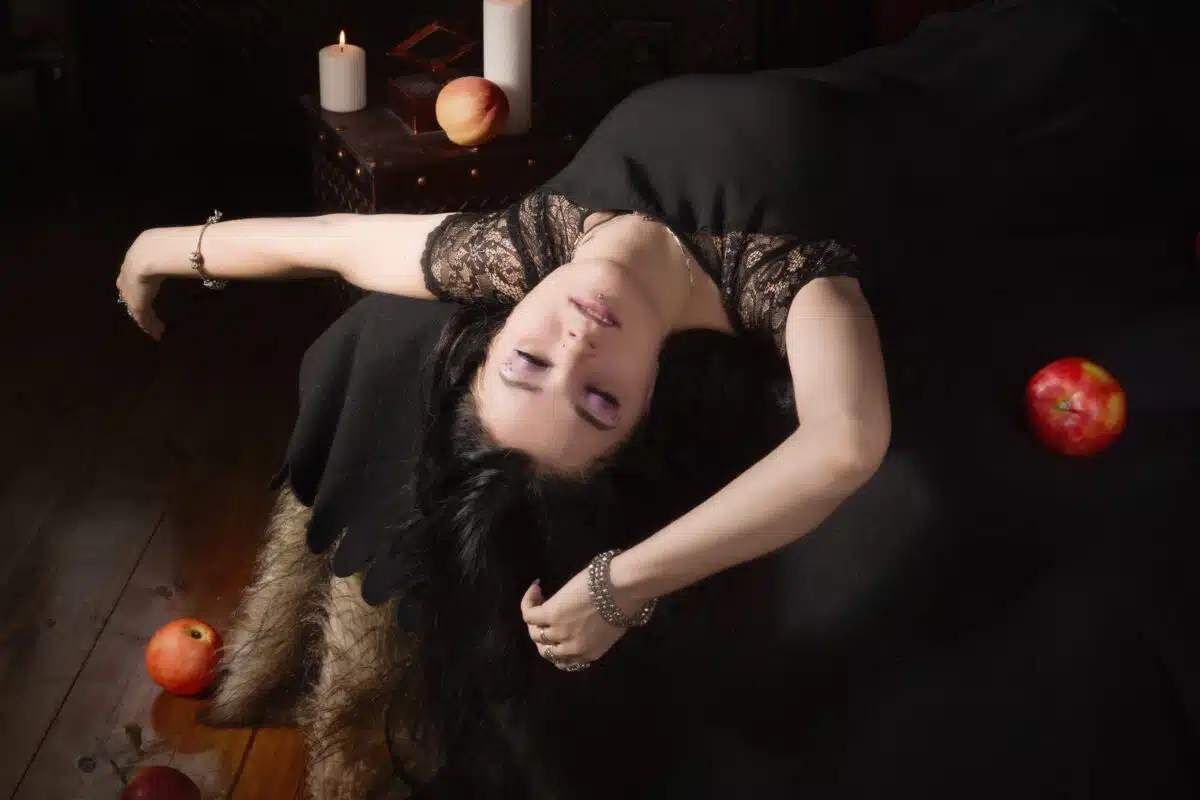
“Sick Man And Angel” by John Gay
“Is there no hope?” the sick man said.
The silent doctor shook his head,
And took his leave with unfeigned sorrow
To lose a patient on the morrow.
When left alone, the dying man
“Let me review my life” – began;
“My bargains – well, they were well made;
‘Tis the necessity of trade –
Necessity is no transgression.
Now for my portion in possession:
My lands and my securities,
They all are right, in every wise.
If justice to myself and heirs
Have done some hardships unawares, –
Left Smith in jail for debt, or sent
The Browns adrift for unpaid rent, –
I’ve given alms and helped my friends,
What I propose will make amends:
When I am numbered with the dead,
And when my good bequests are read,
Then will be seen and then be known
Benevolence I have not shown.”
The angel, present by his side,
Bade him not in such hopes confide:
“What deed have you done worthy praise?
What orphan blesses, widow prays,
To lengthen out your life one year?
If you will now add deeds to prayer –
Your neighbours want, whilst you abound –
Give me a cheque – five hundred pound.”
“Where is the haste?” the sick man whines;
“Who knows – who knows what Heaven designs:
That sum, and more, are in my will;
Perhaps I may recover still.”
“Fool!” said the angel: “it is plain
That your great happiness was gain;
And after death would fain atone
By giving what is not your own.”
“Whilst there is life, there’s hope!” he cried;
“Then why such haste?” – he spoke, and died.
“To Consumption” by Henry Kirke White
Gently, most gently on thy victim’s head,
Consumption, lay thine hand ! Let me decay
Like the expiring lamp, unseen, away,
And softly go to slumber with the dead,
And if ‘ tis true what holy men have said
That strains angelic oft foretell the day
Of death to those good men who fall thy prey,
O! let the aërial music ‘ round my bed,
Dissolving sad in dying symphony,
Whisper the solemn warning in mine ear,
That I may bid my loving friends good-bye
Ere I depart upon my journey drear,
And, smiling faintly on the painful past,
Compose my decent head, and breathe my last.”
“The Dying Christian To His Soul” by Alexander Pope
Vital spark of heav’nly flame,
Quit, oh, quit, this mortal frame!
Trembling, hoping, ling’ring, flying,
Oh, the pain, the bliss of dying!
Cease, fond Nature, cease thy strife,
And let me languish into life!
Hark! they whisper; Angels say,
Sister Spirit, come away.
What is this absorbs me quite,
Steals my senses, shuts my sight,
Drowns my spirits, draws my breath?
Tell me, my Soul! can this be Death?
The world recedes; it disappears;
Heav’n opens on my eyes; my ears
With sounds seraphic ring:
Lend, lend your wings! I mount! I fly!
O Grave! where is thy Victory?
O Death! where is thy Sting?

“The Sick Muse” by Charles Baudelaire
Poor Muse, alas, what ails thee, then, today?
Thy hollow eyes with midnight visions burn,
Upon thy brow in alternation play,
Madness and Horror, cold and taciturn.
Have the green lemure and the goblin red
Poured on thee love and terror from their urn?
Or with despotic hand the nightmare dread
Deep plunged thee in some fabulous Minturne?
Would that thy breast, where so deep thoughts arise,
Breathed forth a healthful perfume with thy sighs;
Would that thy Christian blood ran wave by wave
In rhythmic sounds the antique numbers gave,
When Phoebus shared his alternating reign
With mighty Pan, lord of the ripening grain.
“The Dying Child” by John Clare
He could not die when trees were green,
For he loved the time too well.
His little hands, when flowers were seen,
Were held for the bluebell,
As he was carried o’er the green.
His eye glanced at the white-nosed bee;
He knew those children of the spring:
When he was well and on the lea
He held one in his hands to sing,
Which filled his heart with glee.
Infants, the children of the spring!
How can an infant die
When butterflies are on the wing,
Green grass, and such a sky?
How can they die at spring?
He held his hands for daisies white,
And then for violets blue,
And took them all to bed at night
That in the green fields grew,
As childhood’s sweet delight.
And then he shut his little eyes,
And flowers would notice not;
Birds’ nests and eggs caused no surprise,
He now no blossoms got;
They met with plaintive sighs.
When winter came and blasts did sigh,
And bare were plain and tree,
As he for ease in bed did lie
His soul seemed with the free,
He died so quietly.
“The Plague. A Phantasy” by Friedrich Schiller
Plague’s contagious murderous breath
God’s strong might with terror reveals,
As through the dreary valley of death
With its brotherhood fell it steals!
Fearfully throbs the anguish-struck heart,
Horribly quivers each nerve in the frame;
Frenzy’s wild laughs the torment proclaim,
Howling convulsions disclose the fierce smart.
Fierce delirium writhes upon the bed
Poisonous mists hang o’er the cities dead;
Men all haggard, pale, and wan,
To the shadow-realm press on.
Death lies brooding in the humid air,
Plague, in dark graves, piles up treasures fair,
And its voice exultingly raises.
Funeral silence churchyard calm,
Rapture change to dread alarm.
Thus the plague God wildly praises!

“The Dying Lover” by John Wilmot
I cannot change, as others do,
Though you unjustly scorn;
Since that poor swain that sighs for you,
For you alone was born.
No, Phyllis, no, your heart to move
A surer way I’ll try:
And to revenge my slighted love,
Will still love on, will still love on, and die.
When, killed with grief, Amintas lies
And you to mind shall call,
The sighs that now unpitied rise,
The tears that vainly fall,
That welcome hour that ends this smart
Will then begin your pain;
For such a faithful tender heart
Can never break, can never break in vain.
“The Leper” by Algernon Charles Swinburne
Nothing is better, I well think,
Than love; the hidden well-water
Is not so delicate to drink:
This was well seen of me and her.
I served her in a royal house;
I served her wine and curious meat.
For will to kiss between her brows
I had no heart to sleep or eat.
Mere scorn God knows she had of me;
Apoor scribe, nowise great or fair,
Who plucked his clerk’s hood back to see
Her curled-up lips and amorous hair.
I vex my head with thinking this.
Yea, though God always hated me,
And hates me now that I can kiss
Her eyes, plait up her hair to see
How she then wore it on the brows,
Yet am I glad to have her dead
Here in this wretched wattled house
Where I can kiss her eyes and head.
Nothing is better, I well know,
Than love; no amber in cold sea
Or gathered berries under snow:
That is well seen of her and me.-
Three thoughts I make my pleasure of:
First I take heart and think of this, –
That knight’s gold hair she chose to love,
His mouth she had such will to kiss.
Then I remember that sundawn
I brought him by a privy way
Out at her lattice, and thereon
What gracious words she found to say.
(Cold rushes for such little feet ―
Both feet could lie into my hand.
A marvel was it of my sweet
Her upright body could so stand.)
“Sweet friend, God give you thank and grace,
Now am I clean and whole of shame,
Nor shall men burn me in the face
For my sweet fault that scandals them.”
I tell you over word by word.
She, sitting edgewise on her bed,
Holding her feet, said thus. The third,
A sweeter thing than these, I said.
God, that makes time and ruins it,
And alters not, abiding God,
Changed with disease her body sweet,
The body of love wherein she abode.
Love is more sweet and comelier
Than a dove’s throat strained out to sing.
All they spat out and cursed at her
And cast her forth for a base thing.
They cursed her, seeing how God had wrought
This curse to plague her, a curse of his.
Fools were they surely, seeing not
How sweeter than all sweet she is.
He that had held her by the hair,
With kissing lips blinding her eyes,
Felt her bright bosom, strained and bare,
Sigh under him, with short mad cries
Out of her throat and sobbing mouth
And body broken up with love,
With sweet hot tears his lips were loath
Her own should taste the savor of, –
Yea, he inside whose grasp all night
Her fervent body leapt or lay,
Stained with sharp kisses red and white,
Found her a plague to spurn away.
I hid her in this wattled house,
I served her water and poor bread.
For joy to kiss between her brows
Time upon time I was nigh dead.
Bread failed; we got but well-water
And gathered grass with dropping seed.
I had such joy of kissing her,
I had small care to sleep or feed .
Sometimes when service made me glad
The sharp tears leapt between my lids,
Falling on her, such joy I had
To do the service God forbids.
“I pray you let me be at peace ;
Get hence, make room for me to die.”
She said that her poor lip would cease,
Put up to mine, and turn to cry.
I said, “Bethink yourself how love
Fared in us twain, what either did;
Shall I unclothe my soul thereof?
That I should do this, God forbid.”
Yea, though God hateth us, he knows
That hardly in a little thing
Love faileth of the work it does
Till it grow ripe for gathering.
Six months, and now my sweet is dead
A trouble takes me; I know not
If all were done well, all well said,
No word or tender deed forgot.
Too sweet, for the least part in her,
To have shed life out by fragments; yet,
Could the close mouth catch breath and stir,
I might see something I forget.
Six months, and I sit still and hold
In two cold palms her cold two feet.
Her hair, half gray, half ruined gold,
Thrills me and burns me in kissing it.
Love bites and stings me through, to see
Her keen face made of sunken bones.
Her worn-off eyelids madden me,
That were shot through with purple once.
She said, “Be good with me; I grow
So tired for shame’s sake, I shall die.
If you say nothing:” even so.
And she is dead now, and shame put by.
Yea, and the scorn she had of me
In the old time, doubtless vexed her then.
I never should have kissed her. See
What fools God’s anger makes of men!
She might have loved me a little too,
Had I been humbler for her sake.
But that new shame could make love new
She saw not yet her shame did make.
I took too much upon my love,
Having for such mean service done
Her beauty and all the ways thereof,
Her face and all the sweet thereon.
Yea, all this while I tended her,
I know the old love held fast his part:
I know the old scorn waxed heavier,
Mixed with sad wonder, in her heart.
It may be all my love went wrong
A scribe’s work writ awry and blurred,
Scrawled after the blind even-song·
Spoilt music with no perfect word.
But surely I would fain have done
All things the best I could. Perchance
Because I failed, came short of one,
She kept at heart that other man’s.
I am grown blind with all these things:
It may be now she hath in sight
Some better knowledge ; still there clings
The old question, – Will not God do right?
“Dying’ by Emily Elizabeth Dickinson
The sun kept setting, setting still;
No hue of afternoon
Upon the village I perceived, —
From house to house ‘t was noon.
The dusk kept dropping, dropping still;
No dew upon the grass,
But only on my forehead stopped,
And wandered in my face.
My feet kept drowsing, drowsing still,
My fingers were awake;
Yet why so little sound myself
Unto my seeming make?
How well I knew the light before!
I could not see it now.
‘T is dying, I am doing; but
I’m not afraid to know.

“The Dying Adrian To His Soul” by Matthew Prior
Poor, little, pretty, fluttering thing,
Must we no longer live together?
And dost thou prune thy trembling wing,
To take thy flight thou know’st not whither?
Thy humorous vein, thy pleasing folly,
Lies all neglected, all forgot:
And pensive, wavering, melancholy,
Thou dread’st and hop’st thou know’st not what.
“The Dying Need But Little, Dear” by Emily Elizabeth Dickinson
The dying need but little, dear, —
A glass of water’s all,
A flower’s unobtrusive face
To punctuate the wall,
A fan, perhaps, a friend’s regret,
And certainly that one
No color in the rainbow
Perceives when you are gone.
“Fardi Wa Nafli” by Ameen Rihani
I
“Here she is: O take her not away so soon!
Spare her youth—the fatal cup from her withhold!
Let her groan within my arms in life’s forenoon;
Let me still my soul within her eyes unfold.”
God of Love! my faith in thee is not yet gray:
Grant that she may walk again,
Free from suffering and pain—
Give her life to see the altar’s light one day.
II
In the night, before the day that never came,
On the way with poppies and gardenias strewn,
With her music and her torch’s holy flame,
She was struck and never since saw sun or moon.
God of Light! refuse her not another ray:
Her bridal garment joins with me
In beseeching, begging thee—
Give her life to see the altar’s light one day.
III
All the sorrow earth contains I can support,
All the agony and pain I can endure;
Years of misery will seem surprising short,
If to me thou leav’st her, though without a cure.
All my dreams before thy throne, O God, I slay;
These my offerings let be,
These my sacrifice to thee—
Give her life to see the altar’s light one day.
IV
“Hurry here! O get the doctors—call the nurse—
Call the priest—be quick—some more digitaline—
He is here, alas! before you all—a hearse.”
Death has passed us by; take up the violin!
To Thy heart my music fain would find its way;
Every sound Thy grace would earn;
Let it not as sad return—
Give her life to see the altar’s light one day.
V
Every wound and every sigh and groan and tear,
Every drop of Saada’s melting flesh and hope
Now ascend, wrapt in this music, pale and blear—
Around Thy throne, in gyves of pain, they blindly grope.
What remains, what’s gone of her before Thee lay:
Faith and Doubt are at Thy door—
Mother, brother, pray, implore—
Give her life to see the altar’s light one day.

From “On The Death Of My Aunt” by Mary Leadbeater
When the loud storm disturbid the peaceful night,
And the tall elm-trees bow’d before the wind;
On those dear eyes did no soft slumbers light,
And soothing quiet fled that gentle mind.
Not for herself she fear’d: her tender heart
Felt for the poor, wet with the wintry rain;
Felt for the tempest-tossed sons of art,
Who plough’d the dang’rous bosom of the main.
See pining sickness on her vitals seize,
And steal that dear, that valued life away:—
Ah ! stop thy rapid progress, dire disease,
A little—yet a little longer stay.
“The Sick Child” by Robert Louis Stevenson
CHILD.
O Mother, lay your hand on my brow!
O mother, mother, where am I now?
Why is the room so gaunt and great?
Why am I lying awake so late?
MOTHER.
Fear not at all: the night is still.
Nothing is here that means you ill –
Nothing but lamps the whole town through,
And never a child awake but you.
CHILD.
Mother, mother, speak low in my ear,
Some of the things are so great and near,
Some are so small and far away,
I have a fear that I cannot say,
What have I done, and what do I fear,
And why are you crying, mother dear?
MOTHER.
Out in the city, sounds begin
Thank the kind God, the carts come in!
An hour or two more, and God is so kind,
The day shall be blue in the window-blind,
Then shall my child go sweetly asleep,
And dream of the birds and the hills of sheep.
“A Litany in Time of Plague” by Thomas Nashe
Adieu, farewell, earth’s bliss;
This world uncertain is;
Fond are life’s lustful joys;
Death proves them all but toys;
None from his darts can fly;
I am sick, I must die.
Lord, have mercy on us!
Rich men, trust not in wealth,
Gold cannot buy you health;
Physic himself must fade.
All things to end are made,
The plague full swift goes by;
I am sick, I must die.
Lord, have mercy on us!
Beauty is but a flower
Which wrinkles will devour;
Brightness falls from the air;
Queens have died young and fair;
Dust hath closed Helen’s eye.
I am sick, I must die.
Lord, have mercy on us!
Strength stoops unto the grave,
Worms feed on Hector brave;
Swords may not fight with fate,
Earth still holds open her gate.
“Come, come!” the bells do cry.
I am sick, I must die.
Lord, have mercy on us!
Wit with his wantonness
Tasteth death’s bitterness;
Hell’s executioner
Hath no ears for to hear
What vain art can reply.
I am sick, I must die.
Lord, have mercy on us!
Haste, therefore, each degree,
To welcome destiny;
Heaven is our heritage,
Earth but a player’s stage;
Mount we unto the sky.
I am sick, I must die.
Lord, have mercy on us!
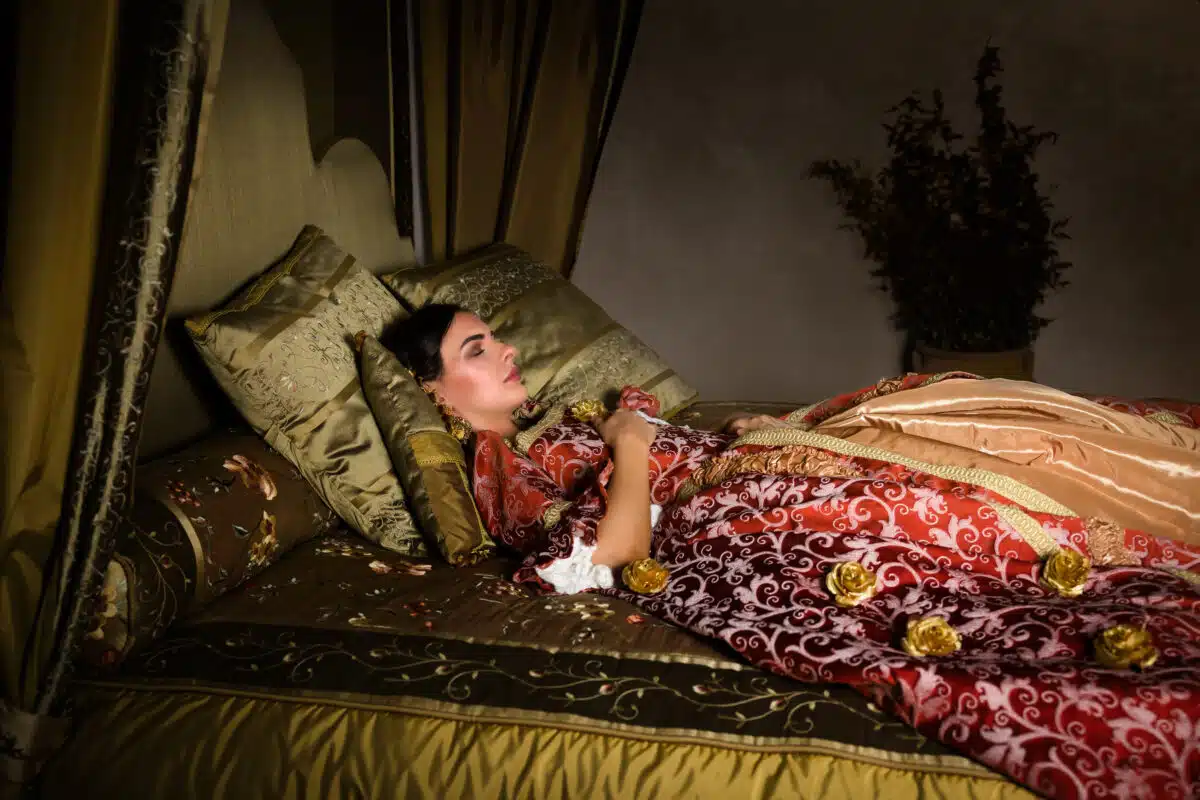
From “The Morning Visit”” by Oliver Wendell Holmes
A sick man’s chamber, though it often boast
The grateful presence of a literal toast,
Can hardly claim, amidst its various wealth,
The right unchallenged to propose a health;
Yet though its tenant is denied the feast,
Friendship must launch his sentiment at least,
As prisoned damsels, locked from lovers’ lips,
Toss them a kiss from off their fingers’ tips.
The morning visit,—not till sickness falls
In the charmed circles of your own safe walls;
Till fever’s throb and pain’s relentless rack
Stretch you all helpless on your aching back;
Not till you play the patient in your turn,
The morning visit’s mystery shall you learn.
Poems About Health

“A Health” by Sir John Suckling
Health to the nut-brown Lass
With the hazel eyes! Let it pass!
She that hath good eyes
— Is a prize.
Let it pass! let it pass!
As much to the lively grey:
As good i’ the night as day!
She that hath good eyes,
Fair and wise —
Drink away! drink away!
I pledge, I pledge: what, ho! some wine!
Here’s to thine—and to thine—
The colours are divine:
But O, to the black! the black!
Give me as much again, and let it be sack!
She that hath black eyes
— Hath Love’s guise
And, it may be, a better knack.
“Assertion” by Ella Wheeler Wilcox
I am serenity. Though passions beat
Like mighty billows on my helpless heart,
I know beyond them lies the perfect sweet
Serenity, which patience can impart.
And when wild tempests in my bosom rage,
“Peace, peace,” I cry, “it is my heritage.”
I am good health. Though fevers rack my brain
And rude disorders mutilate my strength,
A perfect restoration after pain,
I know shall be my recompense at length.
And so through grievous day and sleepless night,
“Health, health,” I cry, “it is my own by right.”
I am success. Though hungry, cold, ill-clad,
I wander for awhile, I smile and say,
“It is but for a time—I shall be glad
To-morrow, for good fortune comes my way.
God is my father, He has wealth untold,
His wealth is mine, health, happiness, and gold.”
“Health” by Robert Herrick
Health is no other, as the learned hold,
But a just measure both of heat and cold.

“Words” by Ella Wheeler Wilcox
Words are great forces in the realm of life:
Be careful of their use. Who talks of hate,
Of poverty, of sickness, but sets rife
These very elements to mar his fate.
When love, health, happiness, and plenty hear
Their names repeated over day by day,
They wing their way like answering fairies near,
Then nestle down within our homes to stay.
Who talks of evil conjures into shape
The formless thing and gives it life and scope.
This is the law: then let no word escape
That does not breathe of everlasting hope.
From “The Passions” by John Armstrong
The choice of aliment, the choice of air,
The use of toil and all external things,
Already sung; it now remains to trace
What good what evil from ourselves proceeds:
And how the subtle principle within
Inspires with health, or mines with strange decay
The passive body. Ye poetic Shades,
That know the secrets of the world unseen,
Assist my song! For, in a doubtful theme
Engag’d, I wander thro’ mysterious ways.
There is, they say, (and I believe there is)
A spark within us of th’ immortal fire,
That animates and moulds the grosser frame;
And when the body sinks, escapes to heaven,
Its native seat; and mixes with the Gods.
Mean while this heavenly particle pervades
The mortal elements, in every nerve
It thrills with pleasure, or grows mad with pain.
And, in its secret conclave, as it feels
The body’s woes and joys, this ruling power
Weilds at its will the dull material world,
And is the body’s health or malady.
“Here’s His Health In Water” by Robert Burns
Although his back be at the wa’
Another was the fautor;
Although his back be at the wa’,
Yet here’s his health in water.
He got the skaitli, he got the scorn,
I lo’e him yet the better.
Though in the moor I hide forlorn,
I’ll drink his health in water.
Although his back be at the wa’,
Yet here’s his health in water.
I’ll maybe live to see the day
That hounds shall get the halter,
And drink his health in usquebaugh
As now I do in water.
I yet may stand as I have stood,
Wi’ him through rout and slaughter,
And bathe my hands in scoundrel blood,
As now I do in water.
Although his back be at the wa’,
Yet here’s his health in water.
